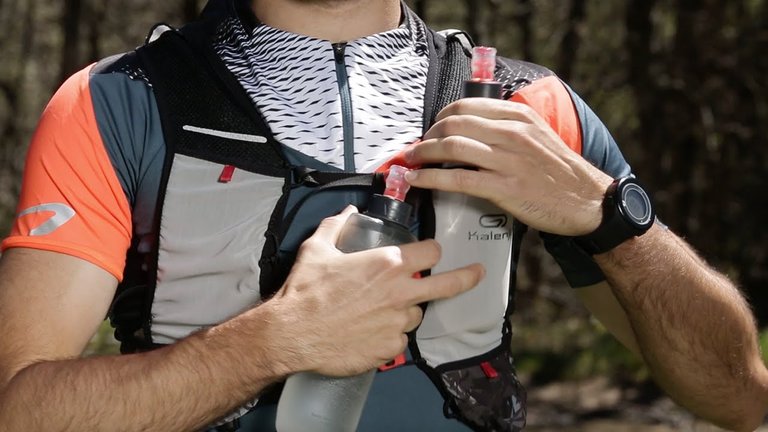Do not drink too much to avoid the otherwise
HYDRATION YES, BUT PROPERLY
Dehydration causes loss of mineral salts, performance in the most extreme cases, vomiting, diarrhea, cramps and to injury. But nor should we drink more account, because then there will be hyponatremia

Today the running fever has made that we Let's go to physical activity under a variety of environmental conditions. In fact, it is not surprising all to see someone running early in the morning warm up to the eyebrows in winter or doing so in the middle of August in maximum insolation hours.
Depending on the metabolic rate , environmental conditions and used clothing, exercise can cause significant elevations of body temperature, both at the central level and skin.
That elevation of body temperature activated in our body heat loss responses, which are: the increase of blood flow to the skin and the increase in the secretion of sweat.
The evaporation of sweat is the main route that has our body to lose heat during intense exercise, which becomes much more evident how much higher is the temperature.
In addition to water, sweat contains electrolytes , therefore, sweat losses are not properly reset, imbalances can occur if electrolyte (dehydration and hyponatremia) with the consequent negative impact on physical performance and, occasionally, our health.
Generally, at the start of the year we went with a normal total body water content and we'll dehydrating during sports, with the exception of athletes who carry out trainings twice a day or extended sessions of exercise every day in hot environments that can drag a deficit of liquids from a workout to the next.
Must keep in mind always that dehydration is cumulative, as the dream! and therefore we can go dehydrating on successive days of training or competition, if we do not rehidratamos correctly and completely between these workouts or competitions.
Obviously effects causing dehydration in an athlete also depend on the individual tolerance, but in general, a dehydration of more than 2% of the body weight will cause a decrease in performance in aerobic exercise as well as a reduction of the cognitive or mental performance in environments with temperate to warm temperatures. To higher level of dehydration more decrease in aerobic exercise performance as well as the ability to concentrate and keep the ability.
It is estimated that you for a loss of 2% of body weight, there will be a worsening of the performance of between 20% and 30%. If this loss increases to 4%, probably we will experience nausea, vomiting and diarrhea, and our performance can reach up to 30% decreases. Lost greater than 8% lead to very serious consequences.
Now, the solution to dehydration is not never drink in excess, which would lead to hyponatremia.
The simple act of drinking in excess will stimulate the production of urine and body water will return to proper hydration levels within a few hours, however, as the mechanism of urine production is less effective during the financial year there is risk dilutional hyponatremia, i.e. presence of too much water and low sodium in the blood.
As the brain is particularly sensitive to changes in blood concentration of sodium, the first sign of be suffering hyponatremia is confusion and the dullness. If the concentration of sodium in the blood decreases rapidly, the symptoms tend to rush and get worse, and may even be fatal.
In general, although dehydration is more common, it is more dangerous to consume too much fluid.
Dehydration can affect performance in exercise, contributing to serious complications by heat and cause rhabdomyolysis due to effort, which is the breakdown of muscle tissue resulting in the release of the contents of the muscle fibers to the blood, with the consequent negative effect on kidney function, but the exercise-associated hyponatremia can be very serious and even fatal.
Differences in rates of sweating between individuals, for different sports and weather stations make it practically impossible to give a universal recommendation that fits all. But in spite of this it is recommended to drink between 6 and 8 ml of fluid per kilogram of weight and time of exercise (approximately 400 to 500 ml/h or 150-200 ml every 20 minutes), always keeping in mind that the more sweat, more we need drinking , and that should not be guided by thirst since it is not a good indicator of the State of hydration.
Plagiarism
Source: https://running.es/hidratacion/hidratacion-si-pero-en-su-justa-medida#.WeUrLEe1tMw
Translated from Spanish